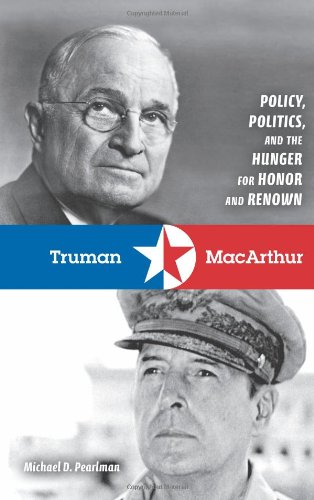

Most ebook files are in PDF format, so you can easily read them using various software such as Foxit Reader or directly on the Google Chrome browser.
Some ebook files are released by publishers in other formats such as .awz, .mobi, .epub, .fb2, etc. You may need to install specific software to read these formats on mobile/PC, such as Calibre.
Please read the tutorial at this link: https://ebookbell.com/faq
We offer FREE conversion to the popular formats you request; however, this may take some time. Therefore, right after payment, please email us, and we will try to provide the service as quickly as possible.
For some exceptional file formats or broken links (if any), please refrain from opening any disputes. Instead, email us first, and we will try to assist within a maximum of 6 hours.
EbookBell Team

0.0
0 reviewsTruman and MacArthur offers an objective and comprehensive account of the very public confrontation between a sitting president and a well-known general over the military's role in the conduct of foreign policy. In November 1950, with the army of the Democratic Peoples Republic of Korea mostly destroyed, Chinese military forces crossed the Yalu River. They routed the combined United Nations forces and pushed them on a long retreat down the Korean peninsula. Hoping to strike a decisive blow that would collapse the Chinese communist regime in Beijing, General Douglas MacArthur, the commander of the Far East Theater, pressed the administration of President Harry S. Truman for authorization to launch an invasion of China across the Taiwan straits. Truman refused; MacArthur began to argue his case in the press, a challenge to the tradition of civilian control of the military. He moved his protest into the partisan political arena by supporting the Republican opposition to Truman in Congress. This violated the President's fundamental tenet that war and warriors should be kept separate from politicians and electioneering. On April 11, 1951 he finally removed MacArthur from command.
Viewing these events through the eyes of the participants, this book explores partisan politics in Washington and addresses the issues of the political power of military officers in an administration too weak to carry national policy on its own accord. It also discusses America's relations with European allies and its position toward Formosa (Taiwan), the long-standing root of the dispute between Truman and MacArthur.